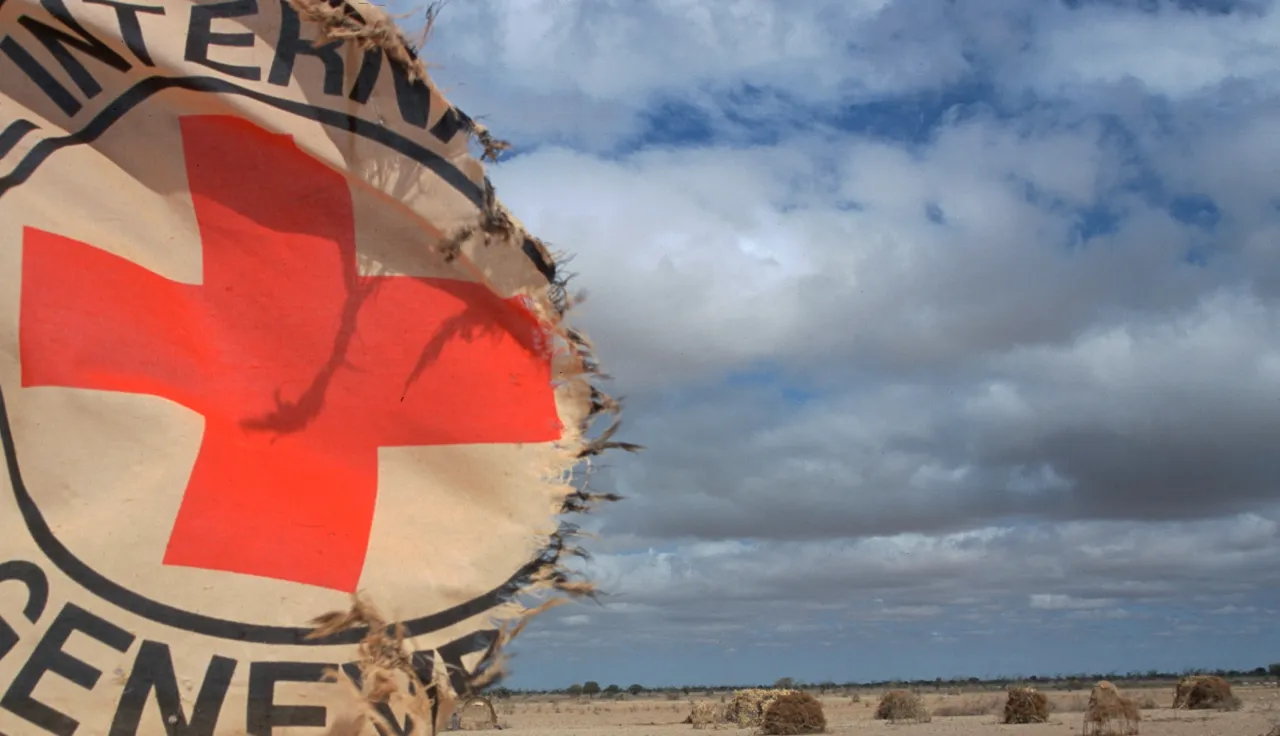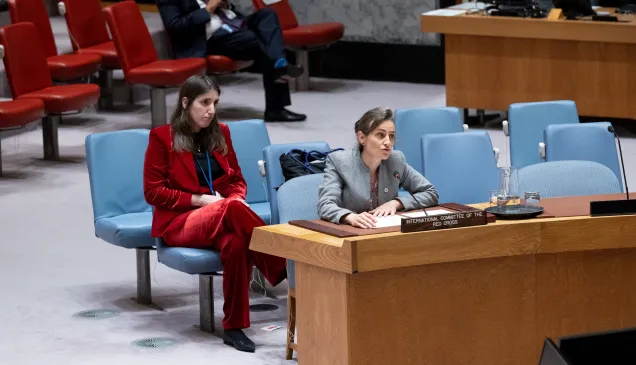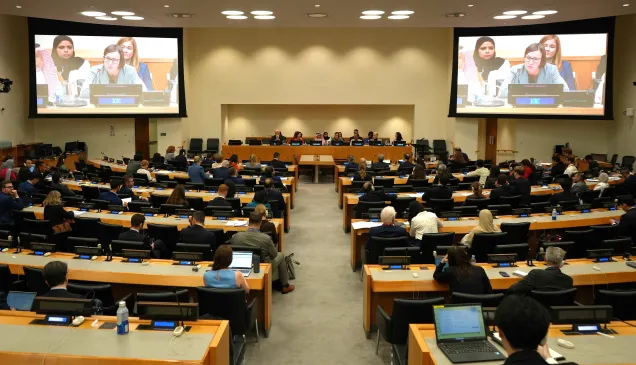Combatting terrorism should not come at the expense of humanitarian action or principles

Remarks to UN General Assembly High-Level Side Event on "Counter-terrorism Frameworks and Sanctions Regimes: Safeguarding Humanitarian Space"
As delivered by ICRC President Peter Maurer
First, we have to acknowledge that in recent years States and international organizations have developed increasingly robust measures to enhance their counter-terrorism framework, adding greater complexity to the delivery of neutral, independent and impartial humanitarian assistance.
We are now at a key moment where collectively we need to adopt more systematic and intelligent approaches for the coexistence of security requirements and humanitarian imperatives.
It is of course legitimate and necessary for States to ensure the security of their population. Indeed, international humanitarian law prohibits acts of terrorism, and the ICRC condemns those acts of terrorism which are out of line with the Geneva Conventions we are constantly referring to, and which legitimize neutral, impartial and independent humanitarian action.
At the same time, the unintended consequences of counter-terrorism measures are limiting humanitarian assistance from reaching communities affected by conflict – in particular, in areas held by non-state armed groups – and they are jeopardizing the neutral, impartial and independent humanitarian action that States have universally agreed upon in the Geneva Conventions, so there is a tension here to manage.
In recent months the ICRC has faced several challenging situations which have delayed or blocked our ability to protect and assist people affected by conflict and violence. These have come in diverse forms, including domestic counter-terrorism legislation, criminal laws, sanctions regimes and measures, clauses in grant contracts, de-risking measures, or simply politically-motivated or security-based restrictions, or economic activities in theatres of conflict in which we operate.
While difficult to quantify, we are also aware of the "chilling effect" of these measures on humanitarian actors and their partners, in particular at the local level. The real or perceived threat is disincentivizing or preventing frontline responders from reaching populations in need.
We appreciate there is now greater recognition of these negative consequences. Examples of good practices by States and recent positive developments, such as the UN Security Council resolution 2462 on the financing of terrorism, must be built upon and systematized. I think we have made great progress by this very resolution, by the recognition of the tension of the principles within the frameworks.. (inaudible).
More structured and regular dialogue is needed between humanitarian organisations, State authorities, notably security agencies, sanctions experts, as well as relevant banking and financial actors. What I resent is that on this issue, humanitarians speak to humanitarians or humanitarian bureaucracies and we never talk to other stakeholders on the issue in order to find practical solutions.
This cross-sector dialogue would build a shared understanding of the interaction of security and humanitarian frameworks and could agree measures to prevent negative impacts on affected populations more accurately than the frameworks in which we discuss these issues normally.
The ICRC is therefore very much interested to engage with all relevant authorities at the local, regional and global levels and to different sectors and expertise in order to find sustainable solutions.
ICRC takes very seriously its role in professionally managing risks, including by mainstreaming risk management across our organization. We know the benefits of this approach and we know it is essential to continually improve.
For us, counter-terrorism legislation and restrictive measures are looked at as a risk to manage, because of course we resent the possible negative impact that it has on us.
At the same time, we also are insisting that we need to agree that in the difficult contexts in which we operate, a zero-risk policy is unrealistic. How would we be able to gather, at the end of the day of the humanitarian assistance and protection operation, no member or affiliate or sympathizer of a terrorist organization is amongst the beneficiaries of a humanitarian organization?
We can't really guarantee that risk, but we have to discuss how we share risk and how we engage, and how we design risk appreciation and risk-sharing mechanisms in order to minimize those situations. States must help, and they cannot just transfer the risk to a humanitarian organization, which anyway, carry the risks of being at the frontlines.
In this light, national forums are an opportunity for discussions to find an acceptable balance. The ICRC has positive experience of such engagement – in a number of situations, despite delays and lengthy negotiations, we have successfully engaged concerned authorities and agreed on pragmatic and principled solutions.
I'm quite a big fan of offsite, informal meetings which include as many stakeholders as possible and allow for a space for trustful and confidential dialogue on the big dilemmas that we are managing.
While charting the way forward, I will recommend the following points:
First, to ensure safeguards are in place for impartial humanitarian action. These would not only prevent the unintended negative humanitarian consequences of counter terrorism measures and sanctions regimes, but in doing so, would help to maintain the legitimacy and support for these measures and regimes in the long-term.
Second, we need to continuously inform policy developments with an operational evidence base and have more systematic monitoring and review of the impact of sanctions and counter terrorism measures on humanitarian action. For instance, mainstreaming a mandate to Sanctions Committees' Panels of Experts to report on the humanitarian impact or systematizing humanitarian briefings in Sanctions Committees would be a good way.
Third, we need Member States to give greater guidance on the scope of the measures to mitigate risks of over-compliance by implementing States, donors and banks. For instance, the involvement of law enforcement bodies to brief on specific operations has proven instrumental in some cases to win the cooperation of the financial sector.
Lastly, when feasible and relevant, to grant standing exemptions for neutral, impartial and independent humanitarian action rather than ad hoc remedies, which are inefficient, and take unwarranted time and resources.
Dear colleagues, combatting terrorism should not come at the expense of humanitarian action or principles. Coexistence of these two frameworks which were developed at the beginning by the first two speakers pose both possible and desirable and is now important to enact totally.
Thank you.



